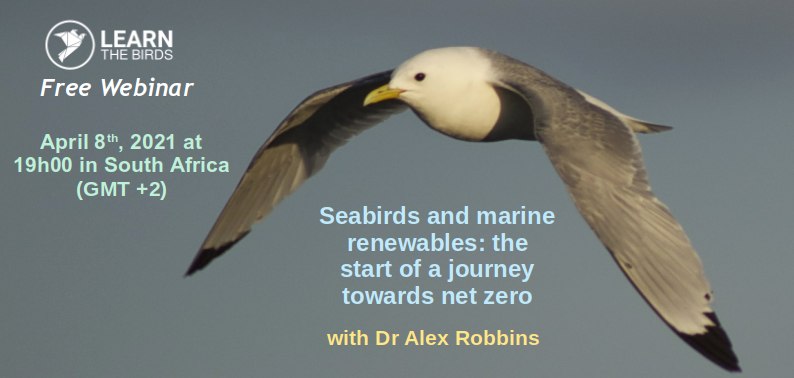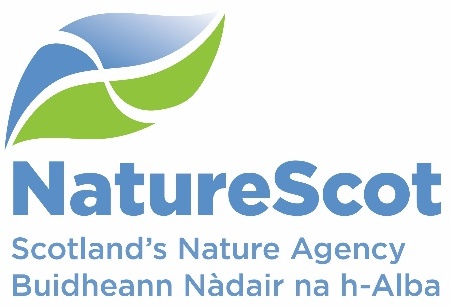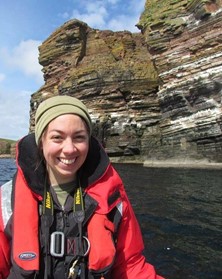
Seabirds and marine renewables: the start of a journey towards net zero
We have both a global climate crisis and global biodiversity crisis and the drivers for the damage this is causing have accelerated over the past 50 years. The rate of human-induced climate change threatens species and habitats in many varied ways across the world. Scotland has a diverse coastline and seas which are home to internationally important seabird populations. However, many of these seabird populations have sustained declines over the past 20 years. The reasons for these declines are complex but climate change is one of the key drivers.
The Scottish Government’s world-leading climate change legislation has set a target of net-zero by 2045. The construction of marine renewable energy developments will play a key role in reducing the effects of climate change and enabling the net zero target to be met. The latest round for offshore wind farms, ScotWind, will help achieve this. However, offshore wind can also pose a risk to seabird populations through impacts such as collision with the turbines, and disturbance and displacement from foraging areas. How can we address both the climate change crisis while addressing the biodiversity crisis and ensure a nature-rich future for Scotland? We’re currently developing guidance to help assess these impacts. This talk will explore how we are trying to ensure marine renewable energy is deployed in the right locations where both climate and biodiversity objectives can be met.
Additional Details
Webinar link - https://zoom.us/j/93853820178?pwd=MElEVkdxQlczRlJRVXZiNTEySXdOQT09
Meeting ID - 938 5382 0178
Passcode - 048633
Event platform - Zoom

 Dr Alex Robbins is a marine ornithologist with NatureScot providing advice to industry and government on the impacts of marine renewable energy developments on Scottish seabird populations. Alex started working in conservation policy and advice in 2005. Since 2006 Alex has undertaken seabird fieldwork in Prince William Sound, Alaska and Shetland, UK for her Masters and then PhD, as well as working as a warden on Noss National Nature Reserve. Her research has ranged from exploring predator impacts at colonies to observing seabird behaviour within high-energy tidal environments. In her spare time (around work and raising two young daughters) she is establishing a long-term monitoring program for marine birds in Bonavista Bay, Newfoundland, Canada.
Dr Alex Robbins is a marine ornithologist with NatureScot providing advice to industry and government on the impacts of marine renewable energy developments on Scottish seabird populations. Alex started working in conservation policy and advice in 2005. Since 2006 Alex has undertaken seabird fieldwork in Prince William Sound, Alaska and Shetland, UK for her Masters and then PhD, as well as working as a warden on Noss National Nature Reserve. Her research has ranged from exploring predator impacts at colonies to observing seabird behaviour within high-energy tidal environments. In her spare time (around work and raising two young daughters) she is establishing a long-term monitoring program for marine birds in Bonavista Bay, Newfoundland, Canada.